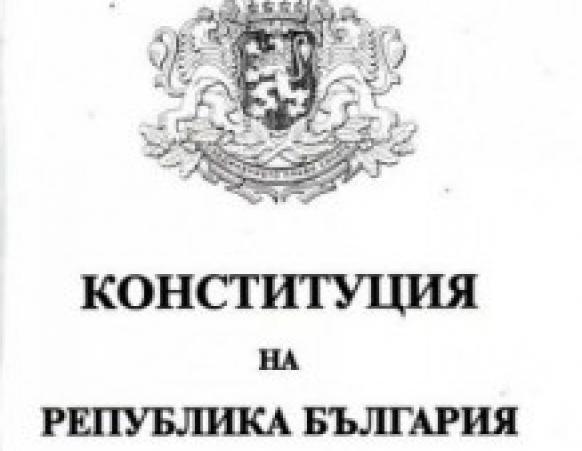/ world today news/ The Supreme Administrative Court (SAC) announced that only the Grand National Assembly can change the Constitution in its part on the judiciary. This is stated in an opinion of the Supreme Court in connection with the project to amend the basic law, reported a BGNES reporter. The opinion will be presented tomorrow to the Temporary Parliamentary Committee on Constitutional Amendments.
The Supreme Court cited several decisions of the Constitutional Court, which clearly set the limits for possible reforms of the basic law in the part on the judiciary. “Such a constitutional reform,” as the Constitutional Court explicitly emphasizes, “should include broad representation of the various social strata in society within the framework of a Grand National Assembly,” noted the supreme judges.
“The draft law thus proposed cannot implement the main recommendations and goals laid down in the Strategy and the annual report of the EC. Moreover, some of the envisaged changes are in direct contradiction with them, creating prerequisites for encapsulation of the system, its complete political dependence, proportional to moving it away from the principles of the rule of law and the rule of law,” the Supreme Court stated.
The supreme judges make detailed comments on each of the drafts of the Constitution proposed by the 132 people’s representatives. “The present draft law limits the independence of the judiciary from the legislative and executive power, by subordinating the mandate of the SJC to the mandate of the higher bodies of the executive and legislative power, which actually participate in its establishment. In this way, a prerequisite is created – that each subsequent National Assembly elects its own Supreme Judicial Council, i.e. to create its own judicial power”, the supreme judges point out and emphasize that this is an attempt to bring the political power under control of the judiciary.
The SAC gives specific examples from which it is clear that the authors of the amendments to the Constitution violated the recommendations of the Council of Europe and the Venice Commission, as well as the Strategy for Judicial Reform itself, which was adopted by the National Assembly at the beginning of the year. The SAC categorically rejects the idea of canceling the secrecy of the vote in the voting of the members of the SJC. They oppose strengthening the powers of the Minister of Justice, as part of the executive branch, and reducing the mandate of the SJC from five to four years. The special amendment for the hearing of the chief prosecutor by the National Assembly was mentioned as unnecessary, because the prosecution’s accountability is also available at the moment.
On Tuesday at 15:00 in hall 134 of the National Assembly, a key meeting of the Temporary Commission for amending the Constitution will be held. It is expected that the opinions on changing the basic law of the SJC, the Supreme Courts, the Prosecutor’s Office and the investigation, the Inspectorate of the SJC and the High Bar Council will be announced at it. At the meeting of the commission on July 3 (Friday), the opinions of non-governmental organizations and the academic community will be heard.
A meeting is scheduled for July 7 (Tuesday), at which the members of the commission are scheduled to hold a first vote on the proposals for changes to the Constitution. Then it will become clear whether at this stage in the National Assembly there is an attitude towards securing the minimum majority of 160 people’s representatives to change the basic law. So far, only 132 MPs have declared their support.
#Supreme #Court #Constitution


